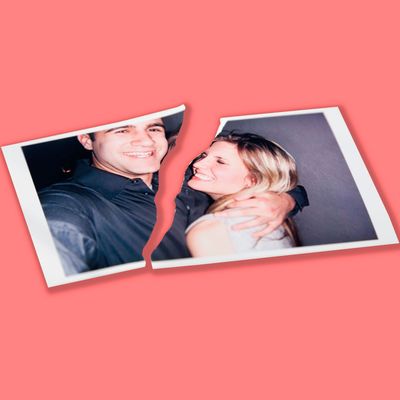
As a general rule, humans aren’t great at handling uncertainty — but that doesn’t mean we’re particularly good at accepting finality, either, especially when the final outcome runs counter to what we want for ourselves.
When those two facts collide in the same situation, it’s the latter second one that often wins out. A breakup is the perfect example: Believing that this isn’t really the end, that getting back together may be in the cards someday, can be easier and less painful than forging ahead with the conviction that things really are over for good. Uncertainty can be stressful, yes, but when it takes the form of hope, it can also be soothing.
Sometimes, though, that hope can itself be stressful in toxic ways, particularly when it creates a continued on-again off-again pattern of breakups and reconciliations. A study recently published in the journal Family Relations found a link between so-called “relationship cycling,” and a host of negative outcomes, including higher rates of depression, anxiety, and overall distress.
On the surface, this doesn’t seem entirely surprising. It makes sense that the least stable relationships would cause the most psychological angst, and vice versa (the authors acknowledged that the link likely ran both ways). But within the study findings was a small, deeply sad note about these relationships: Each round of on-and-off cycling tends to make the newest relationship iteration a little bit worse than the one that came before it.
The reason is an instinct that plays out as equal parts self-preservation and self-destruction: The more times you’ve broken up in the past, the less you invest — of your time, your emotions, your mental effort — in maintaining the relationship moving forward. And on the one hand, why would you, when history has shown that pouring resources into this will likely prove itself to be a waste of time? But on the other hand, why wouldn’t you, when you’ve already spent so much time trying (and failing, sure, but still trying) to make this thing work?
There are some cases where it’s a good thing that the relationship you left isn’t the same one you’re coming back to. Maybe you split for reasons that were preventable in hindsight, or that highlighted things you each needed to work on, and now after a lot of joint and individual soul-searching you’re ready to make a concerted effort to tackle those things. The other scenario, though, is that you drift back together out of convenience or nostalgia or even real longing that doesn’t come with any kind of plan for fixing your issues together. And that scenario, in practice, creates a sort of catch-22 that leaves two people stranded together in romantic limbo: Go through enough on-agains and off-agains, and the relationship morphs into something else entirely, a halfhearted third state that exists somewhere between fully together and fully apart.




